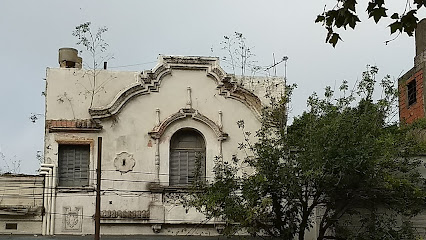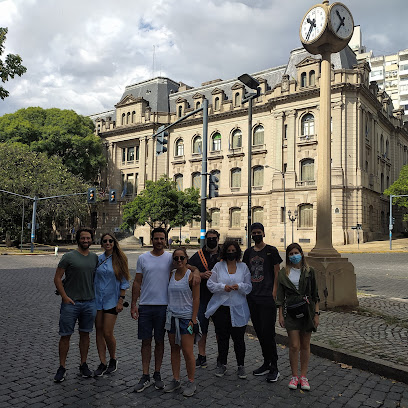
Discover the Vibrant Heart of Rosario: Barrio Pichincha
Barrio Pichincha, located in the lively city of Rosario, is a dynamic neighbourhood that seamlessly blends history, culture, and modernity. Once known for its bustling red-light district in the early 20th century, Pichincha has transformed into a popular destination for tourists seeking a unique and authentic Argentine experience. Start your exploration with a walk through its charming streets, where you'll find beautifully preserved colonial architecture alongside contemporary art murals. The area is renowned for its bohemian vibe, attracting artists, musicians, and creatives who contribute to its vibrant atmosphere. Don't miss the opportunity to visit the Mercado del Patio, a restored market offering local delicacies, artisanal products, and a taste of Rosario's rich culinary scene. For nightlife enthusiasts, Barrio Pichincha is a hub of entertainment. The neighbourhood comes alive after dark with a plethora of bars, clubs, and live music venues. Whether you're in the mood for a sophisticated cocktail at an upscale bar or a night of dancing to traditional tango music, Pichincha has something to offer everyone. Be sure to check out the array of cultural events, such as art exhibitions and theatre performances, that regularly take place in this eclectic neighbourhood.
Local tips in Barrio Pichincha
- Visit the Mercado del Patio for a taste of local food and artisanal products.
- Explore the street art and murals that add a colorful touch to the neighbourhood.
- Experience the nightlife by visiting local bars and live music venues.
- Attend cultural events like art exhibitions and theatre performances.
- Take a historical walking tour to learn about the neighbourhood's transformation.
Discover the Vibrant Heart of Rosario: Barrio Pichincha
Barrio Pichincha, located in the lively city of Rosario, is a dynamic neighbourhood that seamlessly blends history, culture, and modernity. Once known for its bustling red-light district in the early 20th century, Pichincha has transformed into a popular destination for tourists seeking a unique and authentic Argentine experience. Start your exploration with a walk through its charming streets, where you'll find beautifully preserved colonial architecture alongside contemporary art murals. The area is renowned for its bohemian vibe, attracting artists, musicians, and creatives who contribute to its vibrant atmosphere. Don't miss the opportunity to visit the Mercado del Patio, a restored market offering local delicacies, artisanal products, and a taste of Rosario's rich culinary scene. For nightlife enthusiasts, Barrio Pichincha is a hub of entertainment. The neighbourhood comes alive after dark with a plethora of bars, clubs, and live music venues. Whether you're in the mood for a sophisticated cocktail at an upscale bar or a night of dancing to traditional tango music, Pichincha has something to offer everyone. Be sure to check out the array of cultural events, such as art exhibitions and theatre performances, that regularly take place in this eclectic neighbourhood.
Iconic landmarks you can’t miss
Monumento Histórico Nacional a la Bandera
Discover Argentina's national pride at the iconic Flag Memorial in Rosario, a historical landmark and architectural marvel.
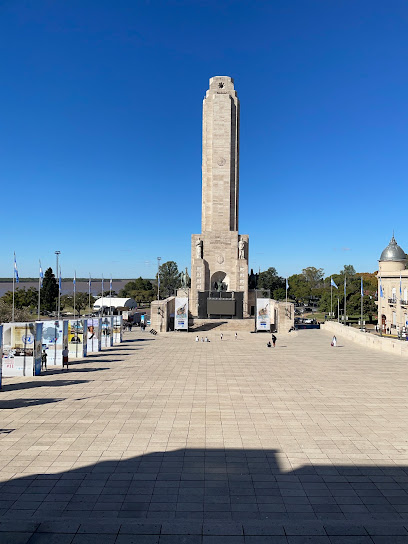
Acuario del Río Paraná
Explore the wonders of the Paraná River's aquatic life at Rosario's Acuario del Río Paraná, a unique center for education, science, and conservation.
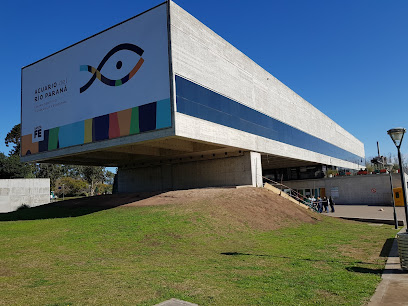
Independencia. Park
Discover Rosario's largest and most traditional park, a vibrant green space with gardens, a lake, museums, and sporting venues.

La Isla de los Inventos
Ignite imagination at La Isla de los Inventos, a Rosario theme park blending history, culture, and interactive fun for the whole family.
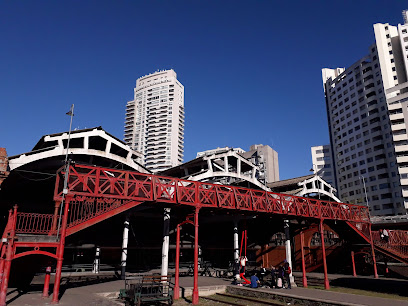
El Popular Pichincha
Experience authentic Argentine flavors and a vibrant atmosphere at El Popular Pichincha, a Rosario culinary institution in the heart of Pichincha.
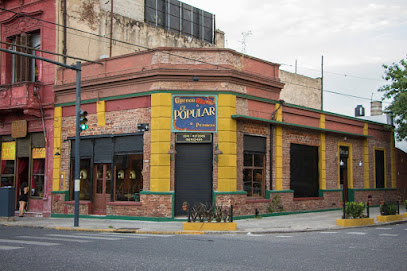
Distrito Pichincha
A vibrant open-air food fair in Rosario's Pichincha district, offering diverse culinary options in a lively atmosphere.
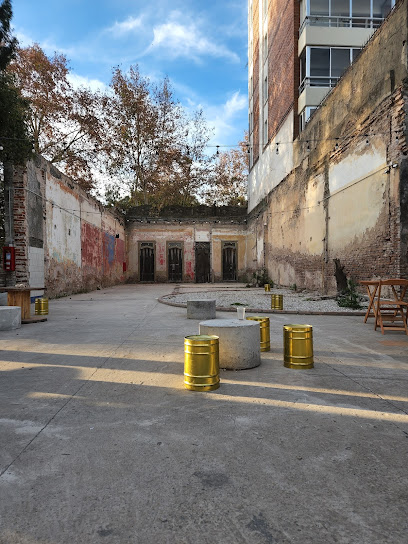
Plaza Pichincha
Experience Rosario's vibrant culinary scene at Plaza Pichincha, a trendy restaurant in the heart of the historic Pichincha district.
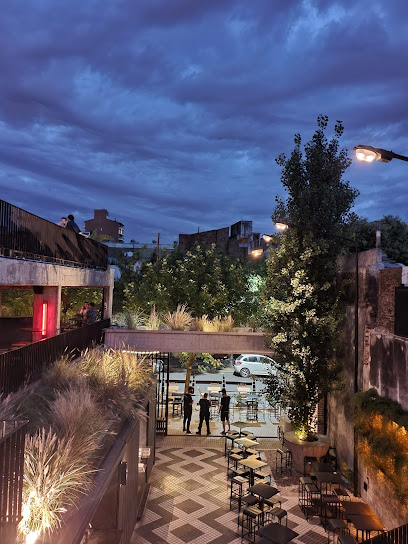
La Bodeguita de Pichincha
Experience Rosario's vibrant culinary scene at La Bodeguita de Pichincha, offering traditional Argentine dishes, local drinks, and a lively atmosphere.
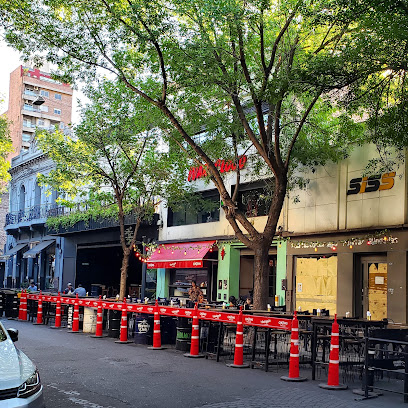
Plazoleta Pichincha
Experience the vibrant atmosphere of Plazoleta Pichincha, a green oasis in Rosario perfect for relaxation and cultural immersion.
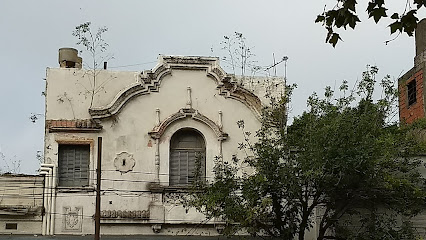
Plaza Barranca de las Ceibas.
Explore the lush greenery and vibrant culture of Plaza Barranca de las Ceibas in Rosario, a perfect urban escape for tourists and locals alike.
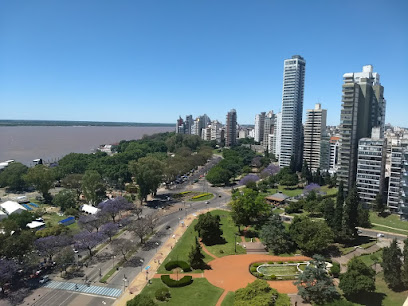
Planta Alta Pichincha
Experience Rosario's vibrant nightlife at Planta Alta Pichincha, a rooftop bar offering great drinks and a lively atmosphere in the heart of Pichincha.
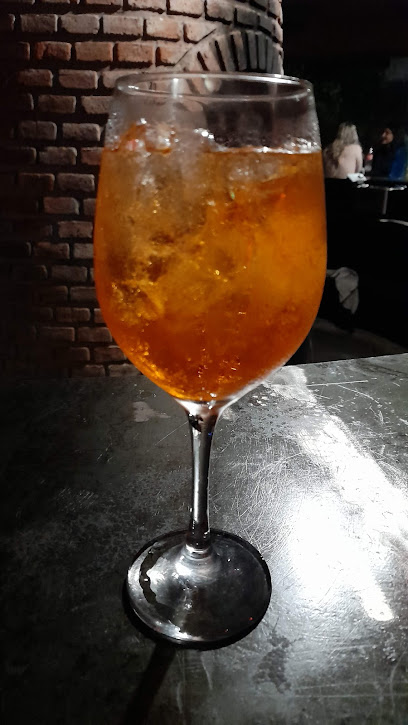
Rosario Free Tour
Explore Rosario's iconic landmarks and hidden gems with a local expert. Discover the city's rich history and vibrant culture on foot.
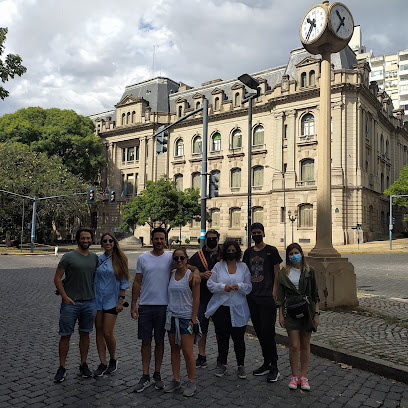
Subsede Pichincha - Club Atlético Rosario Central
Discover a vibrant fitness community at Club Atlético Rosario Central in Rosario, where health and wellness meet local culture.
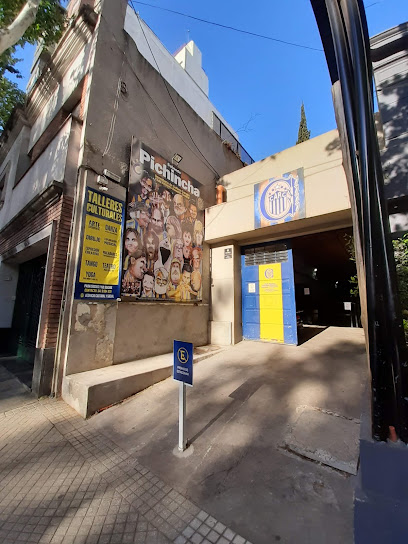
Paseo Pichincha
Escape to Rosario's Paseo Pichincha: A vibrant park blending nature, culture, and community in a historic setting. Perfect for relaxation and local flavors.
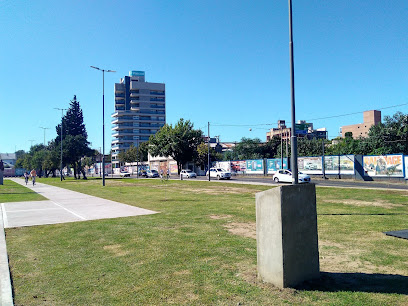
La Base de Pichincha
Experience exquisite wines and vibrant ambiance at La Base de Pichincha, a must-visit stand bar in Rosario's lively Pichincha district.
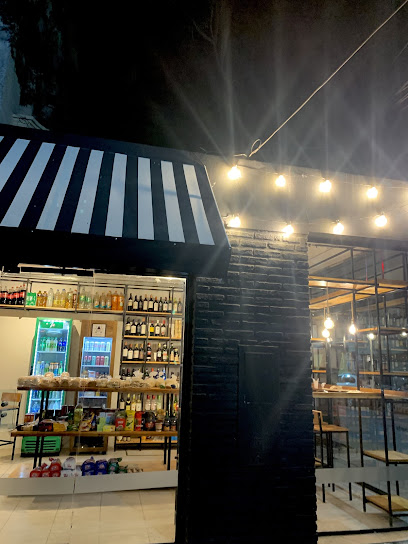
Unmissable attractions to see
Essential places to dine
El Club de la Milanesa Pichincha
Discover authentic Argentine cuisine at El Club de la Milanesa Pichincha - where every bite celebrates tradition and flavor.
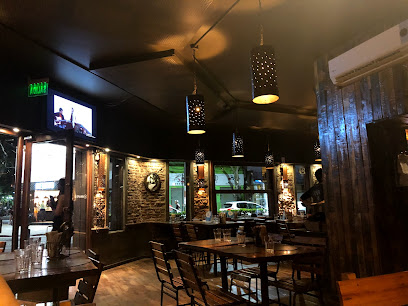
El Popular Pichincha
Discover authentic Argentine cuisine at El Popular Pichincha in Rosario—where every meal is a celebration of flavor.
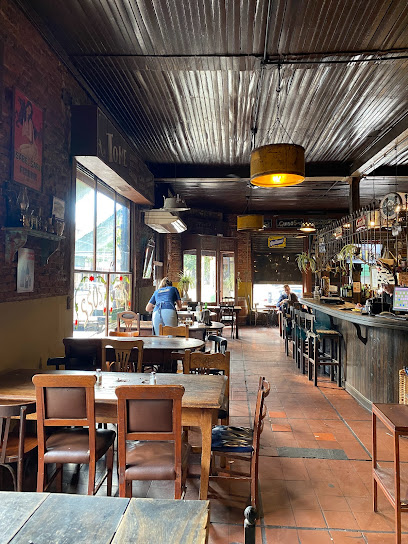
Jimmy
Discover the flavors of Argentina at Jimmy in Rosario - where culinary excellence meets vibrant social dining.
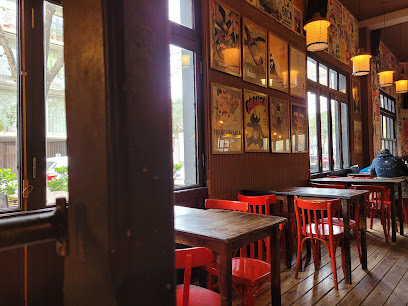
El Luchador de Pichincha
Experience the vibrant flavors of Argentina at El Luchador de Pichincha - family-friendly dining with an extensive beer selection in Rosario.
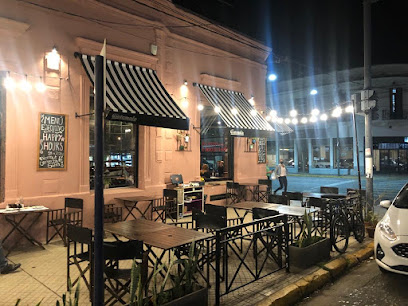
Chicharra Asador A Las Brasas
Experience authentic Argentine barbecue at Chicharra Asador A Las Brasas in Santa Fe – where tradition meets flavor.
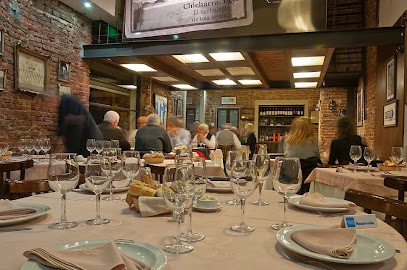
Ceviche Rosario
Experience an unforgettable fusion of Japanese sushi and Peruvian ceviche at Ceviche Rosario - where every dish tells a story.
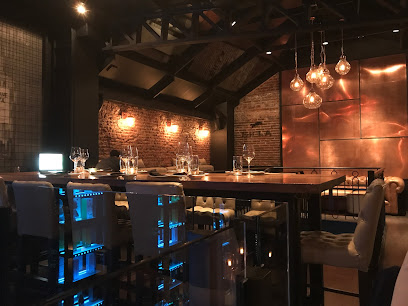
La Bodeguita de Pichincha
Discover La Bodeguita de Pichincha: where traditional Argentine cuisine meets lively nightlife in Rosario.
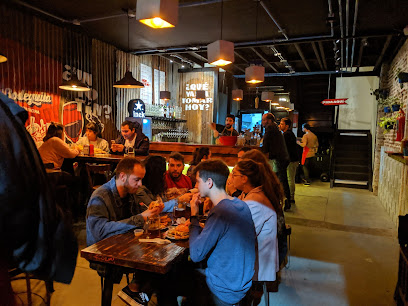
Locanda Valentino Restaurante
Discover Locanda Valentino: Where Italian Tradition Meets Argentine Flavor in Rosario.
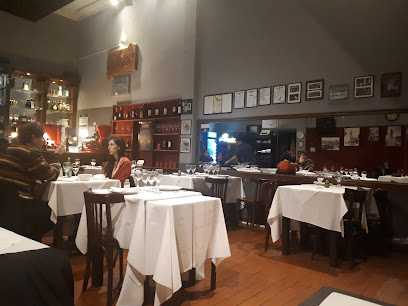
Calixto Café y Bistró
Discover delightful flavors at Calixto Café y Bistró in Rosario—where health meets taste in a vibrant dining experience.
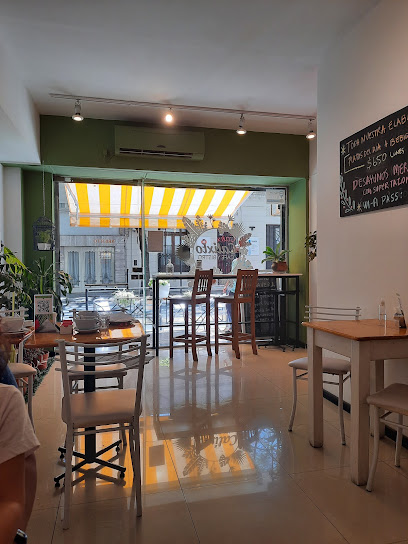
Ajoarriero
Experience exquisite Argentine flavors at Ajoarriero, a top-tier restaurant in Rosario known for its vibrant atmosphere and mouthwatering dishes.
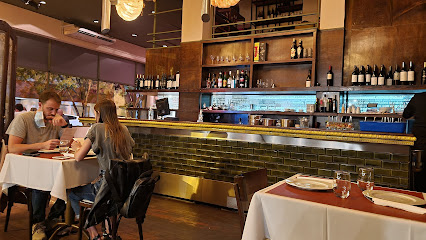
Markets, malls and hidden boutiques
Alto Rosario Shopping
Discover a premier shopping destination in Rosario with a blend of international brands, local boutiques, and delightful dining options at Alto Rosario Shopping.
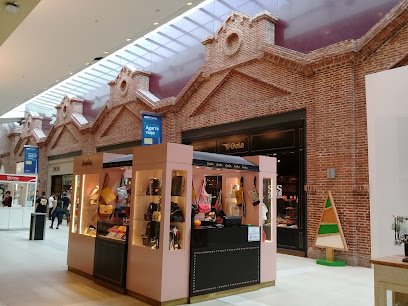
Shopping del Siglo
Discover a shopping paradise at Shopping del Siglo in Santa Fe, where local culture meets global brands in a vibrant retail experience.
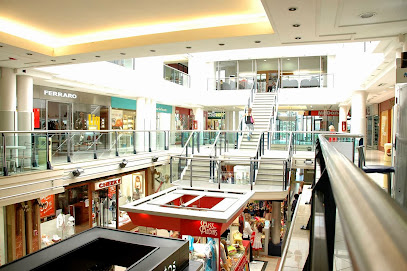
Paso Del Bosque Shopping
Explore a dynamic shopping experience at Paso Del Bosque Shopping in Rosario, Argentina, where fashion, food, and fun come together.
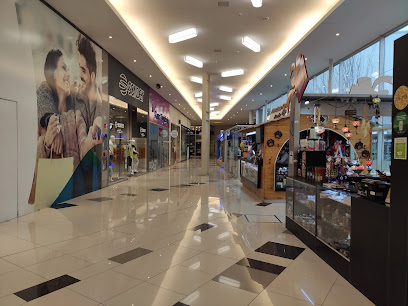
Mercado Retro La Huella
Explore the vintage charm and unique treasures of Mercado Retro La Huella, an antique store in Rosario where history meets creativity.
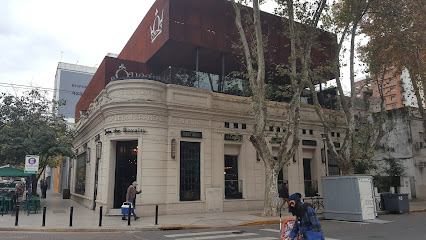
La Mercería de Pichincha
Explore La Mercería de Pichincha in Rosario, a boutique showcasing unique artisanal crafts and local treasures for an unforgettable shopping experience.
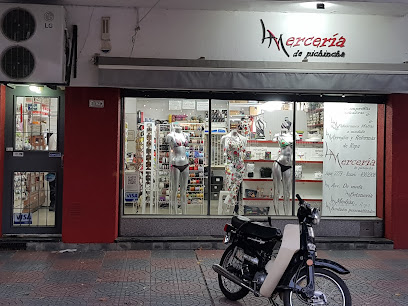
La tienda de pichincha
Discover stylish clothing and accessories for the whole family at La Tienda de Pichincha in Rosario, Argentina.
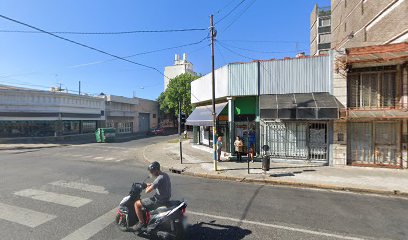
Bazar Express Pichincha
Explore Bazar Express Pichincha for unique gifts and exquisite cutlery in the heart of Rosario, Santa Fe.
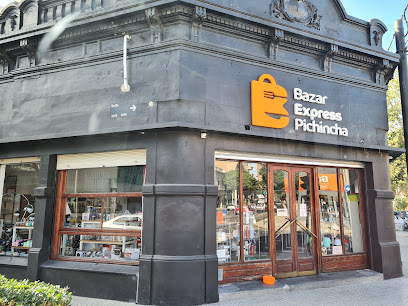
Abajo Precios
Experience exceptional shopping at Abajo Precios in Rosario, where trendy footwear and cell phone accessories meet unbeatable prices.
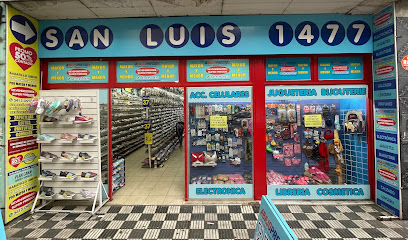
Minimarket pichincha
Explore Minimarket Pichincha in Rosario for local snacks, drinks, and a taste of Argentine culture in a charming kiosk atmosphere.
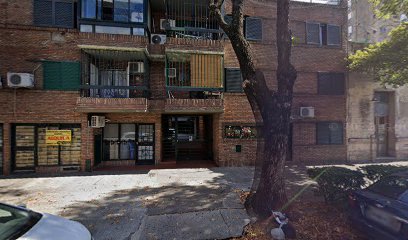
La pichincha
Explore La Pichincha, a unique home goods store in Rosario showcasing local artistry and quality craftsmanship for the discerning traveler.
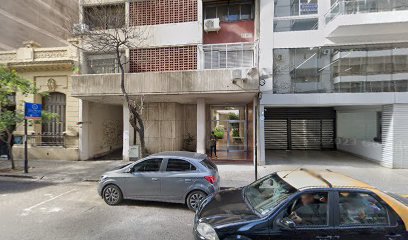
Essential bars & hidden hideouts
Casa Brava
Discover the vibrant nightlife of Rosario at Casa Brava, where great drinks and lively atmosphere create memorable experiences.
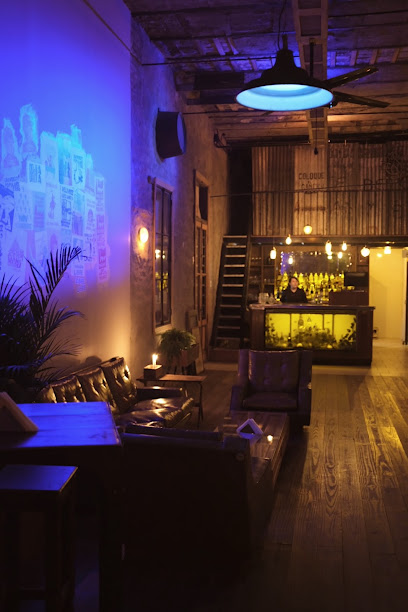
Jimmy
Experience the vibrant culinary scene at Jimmy, a lively bar and restaurant in Rosario offering delicious food and artisanal coffee.
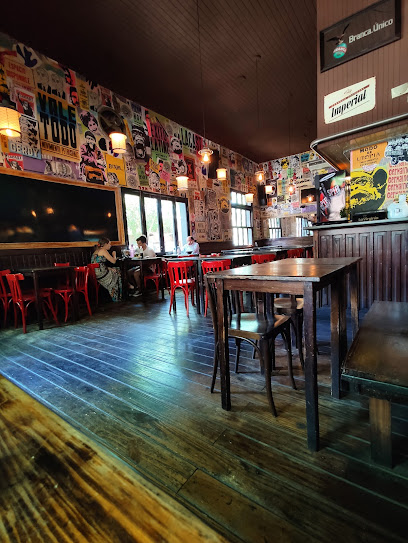
Bon Scott
Discover the vibrant nightlife of Rosario at Bon Scott, a bar offering great drinks and an unforgettable atmosphere that celebrates local culture.
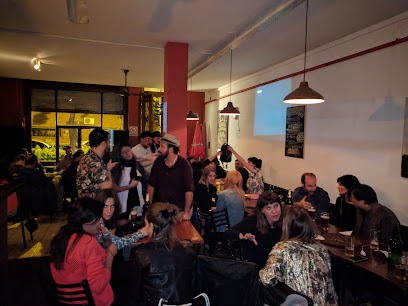
Hangry
Experience the vibrant nightlife of Rosario at Hangry, a lively bar offering creative cocktails and a welcoming atmosphere for all.
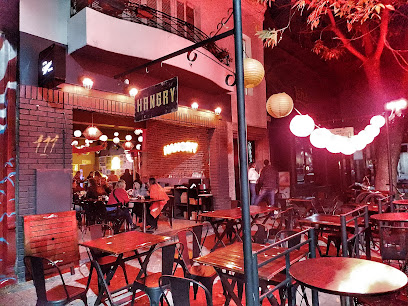
Ruin Bar
Discover the vibrant culinary scene at Ruin Bar in Rosario - a unique grill that blends local flavors with an unforgettable atmosphere.
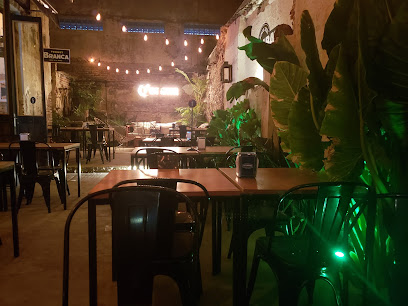
Lolla Bar
Experience the vibrant nightlife of Rosario at Lolla Bar, where creative cocktails and a lively atmosphere await.
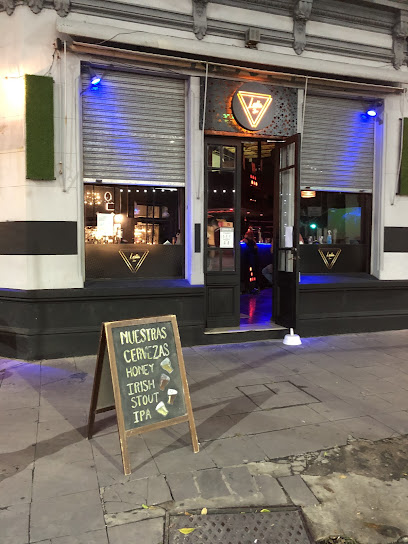
Planta Alta Pichincha
Experience the vibrant nightlife and local culture at Planta Alta Pichincha, a must-visit bar in Rosario, Santa Fe.
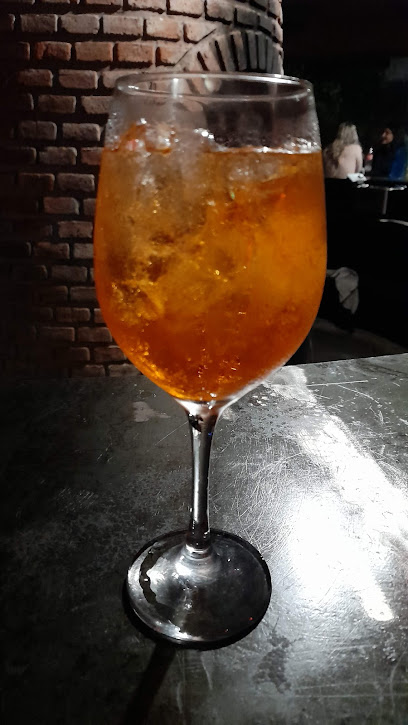
Corner Pichincha
Discover the vibrant nightlife at Corner Pichincha, where great drinks and live music create an unforgettable experience in Rosario.
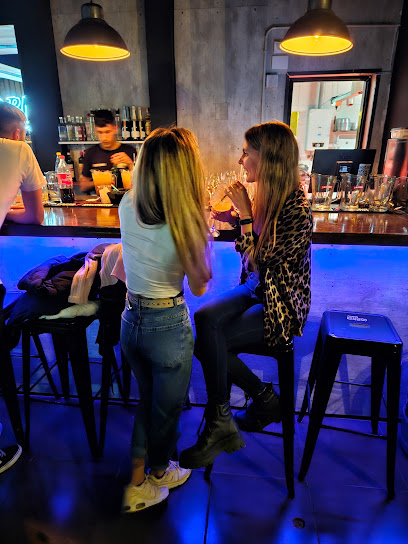
Grolar Bar
Experience the vibrant nightlife at Grolar Bar in Rosario, where great drinks and a lively atmosphere await you.
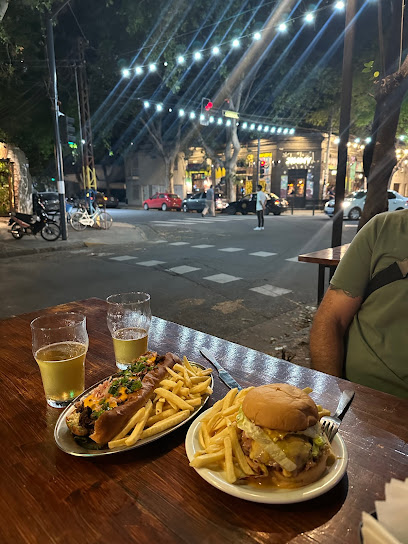
Amy Winehouse Bar
Discover the lively atmosphere of Amy Winehouse Bar, where music and culture create an unforgettable nightlife experience in Rosario, Argentina.
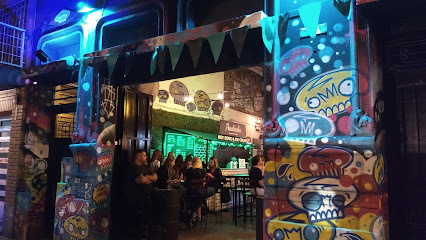
Local Phrases
-
- HelloHola
[OH-lah] - GoodbyeChau
[chow] - YesSí
[see] - NoNo
[noh] - Please/You're welcomePor favor/De nada
[por fah-VOR/deh NAH-dah] - Thank youGracias
[GRAH-see-ahs] - Excuse me/SorryPerdón
[pair-DOHN] - How are you?¿Cómo estás?
[KOH-moh es-TAHS] - Fine. And you?Bien. ¿Y tú?
[BYEN. ee TOO] - Do you speak English?¿Hablás inglés?
[AH-blahs een-GLEHS] - I don't understandNo entiendo
[noh ehn-TYEHN-doh]
- HelloHola
-
- I'd like to see the menu, pleaseMe gustaría ver el menú, por favor
[meh goos-tah-REE-ah vehr ehl meh-NOO, por fah-VOR] - I don't eat meatNo como carne
[noh KOH-moh KAHR-neh] - Cheers!Salud!
[sah-LOOD] - I would like to pay, pleaseQuisiera pagar, por favor
[kee-see-EH-rah pah-GAHR, por fah-VOR]
- I'd like to see the menu, pleaseMe gustaría ver el menú, por favor
-
- Help!¡Ayuda!
[ah-YOO-dah] - Go away!¡Andate!
[ahn-DAH-teh] - Call the Police!¡Llama a la Policía!
[YAH-mah ah lah poh-lee-SEE-ah] - Call a doctor!¡Llama a un médico!
[YAH-mah ah oon MEH-dee-koh] - I'm lostEstoy perdido
[eh-STOY pehr-DEE-doh] - I'm illEstoy enfermo
[eh-STOY ehn-FEHR-moh]
- Help!¡Ayuda!
-
- I'd like to buy...Me gustaría comprar...
[meh goos-tah-REE-ah kohm-PRAR] - I'm just lookingSólo estoy mirando
[SO-loh eh-STOY mee-RAHN-doh] - How much is it?¿Cuánto cuesta?
[KWAHN-toh KWEHS-tah] - That's too expensiveEs demasiado caro
[ehs deh-mah-SYA-doh KAH-roh] - Can you lower the price?¿Puede bajar el precio?
[PWEH-deh BAH-har ehl PREH-syoh]
- I'd like to buy...Me gustaría comprar...
-
- What time is it?¿Qué hora es?
[keh OR-ah es] - It's one o'clockEs la una
[ehs lah OO-nah] - Half past (10)Media (10)
[MEH-dee-ah (DEE-ayss)] - MorningMañana
[mah-NYAH-nah] - AfternoonTarde
[TAHR-deh] - EveningNoche
[NOH-cheh] - YesterdayAyer
[ah-YEHR] - TodayHoy
[HOY] - TomorrowMañana
[mah-NYAH-nah] - 1Uno
[OO-noh] - 2Dos
[dohss] - 3Tres
[trehs] - 4Cuatro
[KWAH-troh] - 5Cinco
[SEEN-koh] - 6Seis
[says] - 7Siete
[SYEH-teh] - 8Ocho
[OH-choh] - 9Nueve
[NWEH-veh] - 10Diez
[DYESS]
- What time is it?¿Qué hora es?
-
- Where's a/the...?¿Dónde está...?
[DOHN-deh es-TAH] - What's the address?¿Cuál es la dirección?
[KWAHL es lah dee-rek-SYOHN] - Can you show me (on the map)?¿Me podés mostrar (en el mapa)?
[meh poh-DESS moh-STRAR (ehn ehl MAH-pah)] - When's the next (bus)?¿Cuándo es el próximo (colectivo)?
[KWAHN-doh es ehl PROH-ksee-moh (koh-lehk-TEE-boh)] - A ticket (to ....)Un boleto (a ...)
[oon boh-LEH-toh (ah ...)]
- Where's a/the...?¿Dónde está...?
History of Barrio Pichincha
-
Barrio Pichincha, established in the mid-19th century, emerged as a vibrant neighborhood in Rosario during a period of rapid urban expansion. Its location near the Paraná River made it an appealing area for immigrants, particularly from Europe, who sought new opportunities in Argentina. The neighborhood quickly became known for its diverse population and dynamic cultural scene.
-
Throughout the late 19th and early 20th centuries, Barrio Pichincha developed a reputation as a cultural melting pot. Italian, Spanish, and other immigrant communities contributed to the neighborhood's rich tapestry of traditions, cuisine, and festivals. This cultural diversity is still evident today in its architecture, food, and local customs.
-
By the early 20th century, the growth of industry in Rosario had a significant impact on Barrio Pichincha. Factories and workshops began to populate the area, providing employment for many residents. This industrial boom not only transformed the local economy but also influenced the social dynamics, as workers' movements and labor unions gained traction during this period.
-
The mid-20th century brought challenges to Barrio Pichincha as urbanization and industrial decline led to economic downturns. Many factories closed, and residents began to migrate to suburban areas. The neighborhood faced neglect, which affected its infrastructure and community cohesion, leading to a period of decline.
-
In recent years, Barrio Pichincha has experienced a renaissance characterized by gentrification and urban revitalization. Artists, entrepreneurs, and young professionals have moved into the area, drawn by its historic charm and potential for development. This transformation has led to a resurgence of cultural activities, with a focus on preserving the neighborhood's heritage while embracing modern innovations.
Barrio Pichincha Essentials
-
Barrio Pichincha is easily accessible from various neighborhoods in Rosario. The most common way is to take a bus, as multiple lines connect the barrio to the city center and other areas. The buses are frequent and inexpensive. Alternatively, taxis and ride-sharing services like Uber are available throughout the city for a more comfortable ride. If you're arriving by train, the Rosario Norte station is about 15 minutes away by taxi or bus.
-
Within Barrio Pichincha, the best way to explore is on foot or by bicycle, as many attractions are closely located. Biking is popular, with several bike rental shops available. Public buses also run through the area, making it easy to reach nearby neighborhoods. If you prefer, taxis and ride-sharing options are widely available and provide a convenient way to navigate.
-
Barrio Pichincha is generally safe for tourists, but it's wise to stay alert, especially after dark. Certain areas in Rosario, particularly around the outskirts of the barrio, may have higher crime rates, especially related to petty theft. Avoid walking alone at night in poorly lit areas and be cautious with your belongings in crowded spots.
-
In case of an emergency, dial 107 for medical assistance and 101 for police. Familiarize yourself with the location of the nearest hospital or clinic. It's advisable to have travel insurance that covers medical emergencies. For minor health issues, pharmacies are available within the barrio for over-the-counter medications.
-
Fashion: Do dress comfortably, but avoid overly revealing attire. Religion: Do be respectful when visiting local churches or religious sites, which may require modest dress. Public Transport: Do be courteous to fellow passengers and offer your seat to those in need. Don't eat or drink on public transport. Greetings: Do greet locals with a friendly 'Hola' and a smile. Eating & Drinking: Do try local foods and drinks, especially at local eateries. Don't refuse food or drink offered to you, as it is considered impolite.
-
To experience Barrio Pichincha like a local, explore the vibrant street art and murals that adorn many buildings. Visit local cafes and bars to enjoy traditional Argentine cuisine and drinks, such as mate. Engaging with local residents can provide insight into the neighborhood's history and culture. Don't miss the chance to check out the area's nightlife, which is lively and full of character, particularly on weekends.
Trending Landmarks in Barrio Pichincha
-
Monumento Histórico Nacional a la Bandera
-
Acuario del Río Paraná
-
Independencia. Park
-
La Isla de los Inventos
-
El Popular Pichincha
-
Distrito Pichincha
-
Plaza Pichincha
-
La Bodeguita de Pichincha
-
Plazoleta Pichincha
-
Plaza Barranca de las Ceibas.
-
Planta Alta Pichincha
-
Rosario Free Tour
-
Subsede Pichincha - Club Atlético Rosario Central
-
Paseo Pichincha
-
La Base de Pichincha
Nearby Cities to Barrio Pichincha
-
Things To Do in Buenos Aires
-
Things To Do in Córdoba
-
Things To Do in La Plata
-
Things To Do in Fray Bentos
-
Things To Do in Colonia del Sacramento
-
Things To Do in San Rafael
-
Things To Do in Montevideo
-
Things To Do in Mar del Plata
-
Things To Do in Mendoza
-
Things To Do in San Juan
-
Things To Do in Tacuarembó
-
Things To Do in Maldonado
-
Things To Do in Punta del Este
-
Things To Do in Rancagua
-
Things To Do in Santiago









